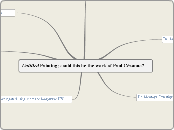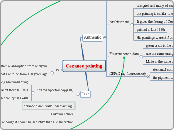By Mostafa Abu El Fadl and Ragy Selim
As light meets matter, art under scrutiny
The Electromagnetic Spectrum
Gamma rays
X-rays
Determines molecules based on the excitation levels
Can see through larger layers
Ultraviolet
Cannot see above 50 microns
Wavelength is too big for further penetration
UV Spectroscopy
Fluoroscence
Analyzes fluorescence of a sample
Reveals age of material based on absorption rate
Can reveal otherwise invisible details
Infrared
Closest to visible light
IR Spectroscopy
Suitable wavelength for further probing
Detects anomalies beneath paint by identifiing chemicals
Microwaves
Radio Waves
Visible Light
Reveals Colors
Evidence Against Authenticity
Animal Binder = late 19th Century
Underdrawing (not characteristic of artist)
Cadmium Yellow Lithopone pigment presence
Polyene UV absorbance of 0.6
Reaching a Conclusion
Scientific method supplements historian method
sometimes even after science results are inconclusive
Not dissimilar to helio/geo centric case
leap in technology can change facts and bring conclusion
Art Verification by scientist
Scientists falsify one another's conclusions
constant state of progress
unlike historian, considers multiple possibilities to explain results
can misinterpret results due to lack of historical context
Combines scientific method and high technology
Art Verification by artist
Appears to be prematurely conclusive
has expertise in field
needs extensive scientific analysis
Uses historic context to determine reliability
Spectroscopy
Absorption
excites molecules to higher energy states
Fluorescence
reflects light off molecules
Detects elements in samples
reveals underdrawings
reveals choice of pigments
reveals dates
Evidence for Authenticity
Emission spectra similar to authentic paintings
Absence of elements not available at the period
Composition of the painting matches that of pigments used during that period.
indistinguishable from other paintings of his
characteristic of his constructivist phase
many of the same visual elements
very similar to a Cézanne at Barnes Foundation









